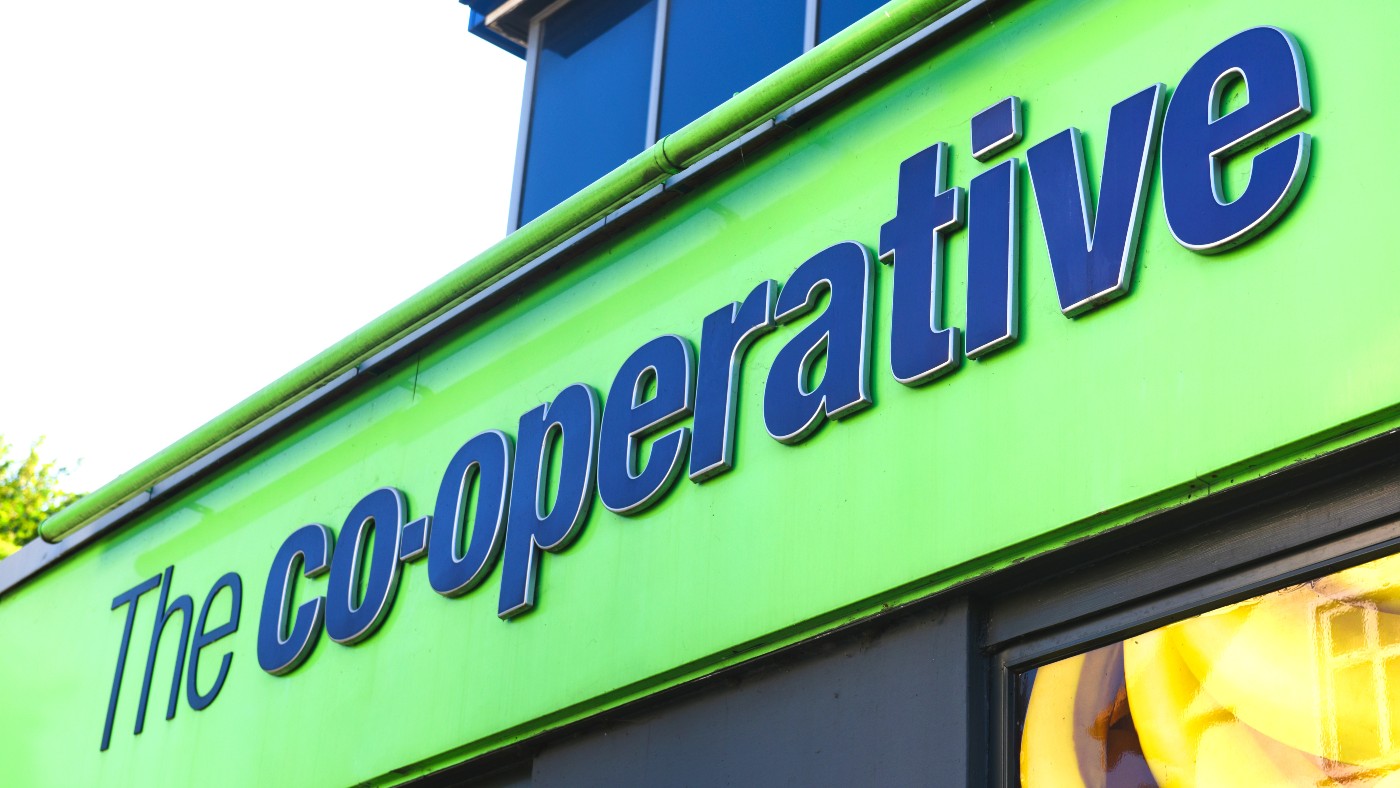Cost of living: is shoplifting on the rise?
Stores tighten security as thefts of goods soars by 22% amid financial turmoil

A free daily email with the biggest news stories of the day – and the best features from TheWeek.com
You are now subscribed
Your newsletter sign-up was successful
Supermarkets are responding to a rise in shoplifting by putting empty coffee jars on the shelves, limiting the number of steaks on view and adding security tags to everyday items such as milk.
The cost-of-living crisis is being blamed for the increase in shoplifting and stores report that many people are stealing products for the first time in their lives as their financial circumstances lead them to take desperate measures.
But what impact does the crime have and what happens if you get caught?
The Week
Escape your echo chamber. Get the facts behind the news, plus analysis from multiple perspectives.

Sign up for The Week's Free Newsletters
From our morning news briefing to a weekly Good News Newsletter, get the best of The Week delivered directly to your inbox.
From our morning news briefing to a weekly Good News Newsletter, get the best of The Week delivered directly to your inbox.
Is shoplifting on the rise?
Yes. The most recent statistics for England and Wales from the Office for National Statistics show that shoplifting rose by 22% in the year to September. The British Retail Consortium (BRC) estimated that there were 8 million “theft incidents” in British shops last year, costing £953 million. The BRC said shop theft is a “long-term rising trend”, The Guardian reported, with incidents more than doubling since 2016-17.
In March, police forces in England, Wales and Northern Ireland recorded nearly 33,000 incidents of shoplifting, according to data analysed by the BBC. That represents a 30.9% increase year on year.
The rise was tracked soon after the cost-of-living crisis began. Shoplifting levels, particularly of everyday items, were “off the charts”, reported The Grocer last May. Store managers told the magazine of “higher crime rates as they’re noticing ‘new first-time shoplifters’ as opposed to ‘the usual suspects only’”.
Meanwhile, the BBC reported last month that Calpol, the pain relief medicine for children, was the most shoplifted item in an east London borough. “Desperation has led to an increase in theft,” said the report from Tower Hamlets, adding that instances of baby products being stolen are “utterly devastating”.
A free daily email with the biggest news stories of the day – and the best features from TheWeek.com
A separate national report found that one in 10 young adults has admitted to stealing items from supermarket self-checkouts, reported the Evening Standard.
Why is it on the rise?
Reports abound of “increasing desperation among customers stealing to feed their children – claims promoted by opposition politicians, but strongly contested by many retailers”, said The Guardian.
Soaring food prices and other challenges of the cost-of-living crisis are being blamed for the increase. The typical family’s annual grocery bill is £837 higher than it was a year ago, said market research firm Kantar, with the prices of staples such as eggs, milk and cheese rising the fastest.
Therefore, “people are shoplifting their way out of the cost of living crisis,” said Novara Media. “Given the dire economic climate, it’s no wonder shoplifting is on the rise,” argued Sophie K. Rosa.
“It’s always been the case that some people shoplift because they have to and others because they want to,” said Refinery29. But “there’s now a widening group in the middle who are shoplifting to save money for essentials or bills, or as one of many ways to stick two fingers up to what they see as a broken Britain”.
These demographic shifts may not be entirely new. As far back as 2012, the BBC reported that a “new wave of middle-class shoplifter [was] targeting high-end delicacies from supermarkets in order to maintain a lifestyle they could no longer afford”. They “appear to be reputable and often justify their actions by arguing that they have become victims to the economic recession”, it said.
What steps are stores taking?
Tighter security measures are becoming more commonplace in supermarket aisles.
A Co-op store in London has put empty “display only” coffee jars on shelves in an apparent bid to deter shoplifters, said Metro. The Walthamstow branch made the move after the price of 200g of Kenco Smooth instant coffee went up to £10.50, while a similar size jar of Nescafé Gold Blend was removed after being put on sale for £9.35.
A Co-op spokesperson told the BBC that these are not nationwide policies at their stores.
They added: “Protecting the safety of our colleagues is a priority and we know shoplifting can be a flashpoint for violence against shop workers so whilst this is not a nationwide policy, a decision to implement product security measures at a local level can be made, if a store is experiencing a particular issue.”
Marks & Spencer has “resorted” to placing just one steak in some of its fridges to “try to curb shoplifting”, said The Telegraph. The retailer told the paper that “in certain stores where there have been high incidences of theft, we will sometimes limit the number of higher value items that are on display”.
Supermarkets have attached security tags to everyday items including cheese, butter and baby formula, reported Metro last summer. Shoppers were “stunned” to see milk containers “treated like expensive alcohol bottles”, it noted in a separate report.
Tracey Clements, the head of BP convenience stores, told The Independent that the chain’s outlets have been forced to employ more security staff, and workers are using extra body cameras to catch shoplifters.
What is the impact of shoplifting?
A 2022 study by the Centre for Retail Research found that shoplifting cost the British economy £660 million in 2021-22. Some individual UK stores are losing as much as £50,000 in stock a week, said Refinery29, while the Daily Express said that the trend is costing retail companies “around £1billion in losses”.
But shoplifting offences recorded by UK police “have remained more or less static over the past decade, at about 300,000 each year”, said The Guardian, noting that the “gulf between those numbers and the 8 million incidents logged by retailers suggests not even 4% of shoplifting crimes are reported to the police”.
Prosecutions are also dropping quickly. According to government figures, in the year to June 2022, 21,279 people were prosecuted in England and Wales for shoplifting, down from 80,352 a decade earlier.
If caught shoplifting, you may be offered a police caution as an alternative to prosecution but this still counts as a criminal conviction, said the Sentencing Council.
If you are convicted in court of shoplifting, you can be jailed for up to six months if the goods are worth less than £200, or for a maximum of seven years if they are worth more than £200.
Chas Newkey-Burden has been part of The Week Digital team for more than a decade and a journalist for 25 years, starting out on the irreverent football weekly 90 Minutes, before moving to lifestyle magazines Loaded and Attitude. He was a columnist for The Big Issue and landed a world exclusive with David Beckham that became the weekly magazine’s bestselling issue. He now writes regularly for The Guardian, The Telegraph, The Independent, Metro, FourFourTwo and the i new site. He is also the author of a number of non-fiction books.
-
 How the FCC’s ‘equal time’ rule works
How the FCC’s ‘equal time’ rule worksIn the Spotlight The law is at the heart of the Colbert-CBS conflict
-
 What is the endgame in the DHS shutdown?
What is the endgame in the DHS shutdown?Today’s Big Question Democrats want to rein in ICE’s immigration crackdown
-
 ‘Poor time management isn’t just an inconvenience’
‘Poor time management isn’t just an inconvenience’Instant Opinion Opinion, comment and editorials of the day
-
 British shops: fighting a crimewave?
British shops: fighting a crimewave?Talking Point The Co-op warned that parts of our cities are now at risk of becoming no-go areas for shops
-
 Christmas scams warning as criminals cash in on cost-of-living crisis
Christmas scams warning as criminals cash in on cost-of-living crisisSpeed Read Research reveals 20% increase in online shopping scams during last year festive season -
-
 The countries where men and women can be stoned to death
The countries where men and women can be stoned to deathfeature Sentencing to death by stoning of Sudanese 20-year-old sparks fresh outrage
-
 What is cyberstalking?
What is cyberstalking?feature Fake social media accounts increasingly used by harassers to target victims